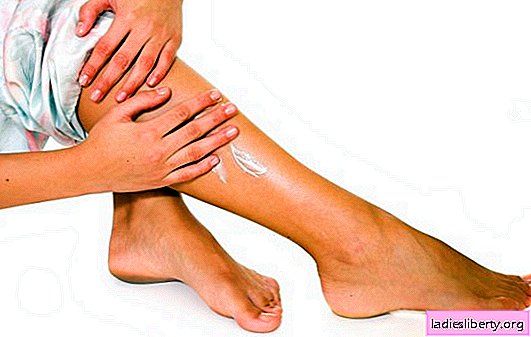
Norwegian researchers have found that people with tattoos have health problems and more often commit crimes. Scientists analyzed about 12,500 people who had 1 or more tattoos on their bodies.
Missing long-term studies?
Until 2019, there were no long-term and extensive studies on the effect of tattoos on people. Although every 10 Russians are tattooed, the health risk is unknown.
It is reliably known that small particles can migrate and accumulate in the lymph nodes or liver.
Some tattoo artists do not know what is in small bottles: "it can be up to hundreds of different substances," scientists say. Pigments, preservatives, solvents, sometimes metals - arsenic or nickel - are found in paints. Partly also substances that are considered carcinogenic.
4 years ago, a research center in Norway indicated that such substances were found in 2 out of 10 tested paints. This “wild mix” of ingredients is due to the fact that pigments are usually not 100% pure. They are not made specifically for tattoos, but are produced in large quantities for industry. Therefore, it may happen that one and the same red pigment enters both automobile paint and human skin.
Even if the label contains ingredients - which is not always the case - most are not aware of their effects on the body. Many rely on the integrity of the manufacturer.
The manufacturer and tattoo artist are not responsible for the consequences.
Professional tattooists should verbally and in writing inform clients about the possible risks, complications, allergies, and subsequent care of the wound. In many cases, it also makes sense to consult a doctor in advance about a tattoo.
Future tattoo owners should fully and mainly independently pay the costs of subsequent monitoring of complications.
Medical insurance companies usually do not bear any costs.
What did scientists discover in a new large study?
According to Norwegian studies, tattooing products contain a high concentration of azo compounds.
Azo dyes can form carcinogenic decay products under the influence of ultraviolet rays.
In black tattoo dyes, soot particles can usually be found. However, they also contain polycyclic aromatic hydrocarbons (PAHs).
Some PAHs have been shown to cause cancer. Other tattoo ink contaminants are heavy metals (mercury, cadmium or nickel) or allergenic preservatives. Excess paint is released after application or enters the body.
The skin during the procedure is often damaged. After the tattoo, a sterile dressing is applied to the treated area. Soon after piercing, the skin turns red, swells and hurts.
If these skin reactions last longer than a few days, this may indicate inflammation. People with tattoos are more likely to have HIV, hepatitis B, C, and herpes. Even during the healing process, a person’s skin can become infected.
The study found that the wound heals much more slowly after tattooing. Therefore, it is important to maintain a clean and dry skin. 3-4 times a day should apply therapeutic ointment.
Only sterile, single-use swabs can be used to disinfect wounds. Avoid sunlight (including a solarium), tight clothing, pool and sauna visits. If possible, dirt should not get into the wound. If the wound does not heal or scars develop, you should always consult a dermatologist.
Pregnant women should not be tattooed.
If you are not sure whether the tattoo poses a particular health risk, it is recommended that you consult a doctor.
In the past, metal particles were in tattoo dyes. Modern dyes, however, practically do not contain metal parts, so MRI in these cases is harmless.
Do tattoos cause deviant behavior?
In the study, scientists noted that antisocial behavior is common in people with tattoos. About 38% were prosecuted, and 87% had at least 6 administrative offenses.
The exact causal relationship between the tattoo and deviant behavior could not be established. However, scientists have found an indirect relationship between tattooing and changes in human behavior.











